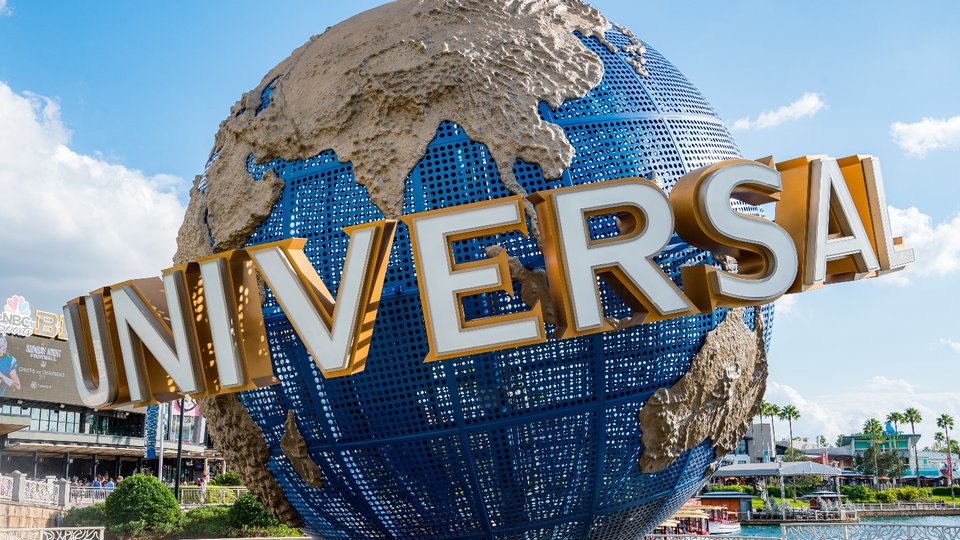Commentary
Winning movie IPs fuel videogame, theme park success
The convergence between marketing of entertainment brands into the physical parks and attraction medium will come to define the future profitability of the business.

September 25, 2023 by Kevin Williams
One of the most significant forces on today's entertainment landscape is movie IPs. The evidence is undeniable.
The success of the "Super Mario Bros. Movie," the second highest grossing animated film of all time, carried over to the opening in Japan and California of the "Super Nintendo World" gates at the Universal parks.
The success was reflected in the corporate report of the parent company, NBCUniversal/Comcast Corp., which saw theme park earnings increasing by 32% across the Japan, California, Florida and Beijing parks.
The movie also broke the box office record for a videogame-based film as well as an animated movie.
A global success
Special mention was made of the record quarter that Universal Japan had achieved, and that this had been repeated at Universal Hollywood — both benefiting from the opening and operation of the "Super Nintendo World" gate.
This new adventure land especially focuses on the IP of Nintendo's Mario mascot and his universe, but it also includes the implementation of immersive technology in AR-based dark rides, interactive attractions and frictionless technology, as seen with the Magic Bands.
At the same time, Universal confirmed to investors its plans to build a family-friendly park resort in Texas, as well as a new location-based entertainment horror attraction venue in Las Vegas as part of the Area 15 expansion.
Overall, investors were told that unprecedented park attendance pushed revenue substantially ahead of expectations, making the company bullish for their parks' business future.
IP power spreads
Other videogames and IPs were major winners in the cinemas during the year — the Mattel toy brand exploded onto the silver screen with the success of the "Barbie" movie, achieving the perfect storm and seeing a record breaking $1 billion worldwide box office shared with Warner Bros. Discovery.
The need to position prominent brands correctly for movie and streaming success was a factor in a decision by the other major toy brand, Hasbro. Famous for its successful "Transformers" movie properties, the corporation has been looking to streamline its operation to weather difficult times in the streaming scene.
The company recently confirmed an agreement with Lionsgate to acquire its Entertainment One movie and streaming production studios for $500 million. This move follows the 2019 acquisition of eOne by Hasbro for $3 billion. During that time the toy and entertainment company moved to realign its plans to focus wholly on its own inhouse properties, which it will develop separately.
True interaction required
The Nintendo inspired adventure clearly represents a new future for technology application within the theme park sector, and those who attempt to ignore this will fall seriously behind. This was reflected in reporting from the Walt Disney Co. to investors that their domestic park business has seen a moderation in demand during the back half of the year.
This was blamed on inflationary pressures, but it was seen by some observers as Universal parks benefiting from park goers, favoring the new Universal investment over a troubled Disney brand. This is a brand that has been mired in massive layoffs, union issues, poorly performing movie properties and internal issues over messages.
Criticism has been laid at the door of Disney management over the handling of key movie properties, while at the same time, we see accusations over price gouging through the use of the Genie+ ticketing/booking app and a general poor turnout at the parks, with trash visible and poorly maintained areas.
The impact of guests voting with their feet was best illustrated by the abandonment, due to poor reception of the "Star Wars: Galatic Starcruiser," which closed after just a year of operation.
With a lack of innovation and with wastage prevalent across the park operation, Disney is yet to field a truly interactive entertainment experience. A failure to innovate was revealed recently with what the media called an epic tech failure as Disney ticketing systems failed at Disneyland, forcing executives to sincerely apologize on social media.
The convergence between marketing of entertainment brands into the physical parks and attraction medium will come to define the future profitability of the business.
(Editor's note: Extracts from this blog are from recent coverage in The Stinger Report, published by Spider Entertainment and its director, Kevin Williams, the leading interactive out-of-home entertainment news service covering the immersive frontier and beyond.)
About Kevin Williams
Along with advisory positions with other entrants into the market he is founder and publisher of the Stinger Report, “a-must-read” e-zine for those working or investing in the amusement, attractions and entertainment industry. He is a prolific writer and provides regular news columns for main trade publications. He also travels the globe as a keynote speaker, moderator and panelist at numerous industry conferences and events. Author of “The Out-of-Home Immersive Entertainment Frontier: Expanding Interactive Boundaries in Leisure Facilities,” the only book on this aspect of the market, with the second edition scheduled for a 2023 release.
 ChatGPT
ChatGPT Grok
Grok Perplexity
Perplexity Claude
Claude






